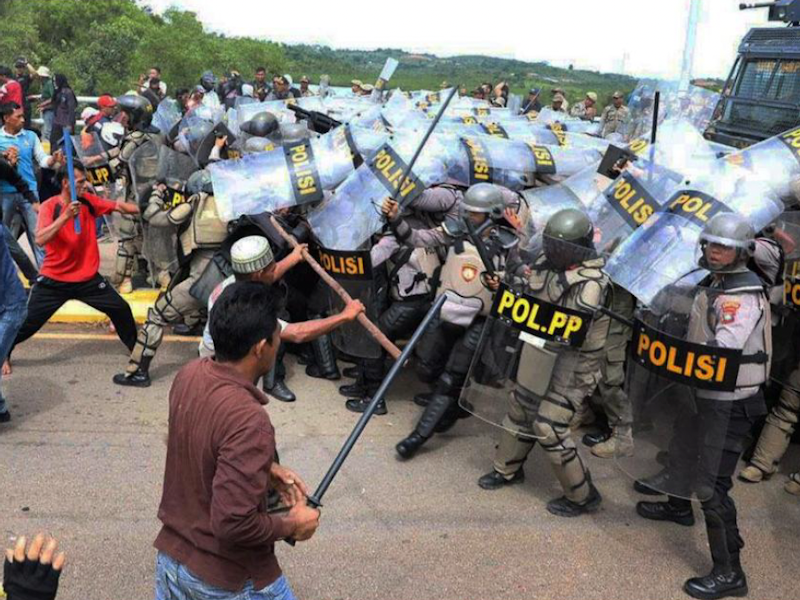State Violence in Indonesia’s Rempang Eco City
National Strategic Project (2023–2025) and Its Impact on Indigenous and Local Minorities
Submitted by NURHAYATI with academic mentor GUSTRI ENI PUTRI
Universitas Islam Indonesia

PROJECT TEAM
NURHAYATI is a student in the International Relations Undergraduate Program at the Islamic University of Indonesia, class of 2021. She served as General Secretary of the Himmah UII Student Press for the 2023/2024 period. Previously, she served as Research and Library Coordinator. She is interested in minority issues, particularly indigenous peoples in ASEAN countries. She has also published card news on this issue in Human Asia.
GUSTRI ENI PUTRI is a lecturer at the Department of International Relations, Universitas Islam Indonesia. She received bachelor’s degree from Universitas Muhammadiyah Yogyakarta and she completed master’s degree from Universitas Gajah Mada Yogyakarta with focus on International Politics. Her research interests include Political Islam especially the role of Islamic women in politics, contemporary global issues in Islam, Islam and Foreign Policy, Indonesia Foreign Policy and Middle East studies. She has written number of publications both academic journals and fiction.
EXECUTIVE SUMMARY:
This project examines the fate of minority groups affected by Indonesia’s National Strategic Project (PSN) Rempang Eco City (2023– 2025). It investigates how development policies, when pursued through repression, marginalized vulnerable communities instead of fostering inclusive growth. Using Herbert Feith’s repressive developmentalist regime framework, the study analyzes state violence and its impact on indigenous peoples, farmers, fishers, and students involved in solidarity movements. The findings show that repression occurred both directly—through intimidation, arrests, and excessive force—and structurally, through laws enabling land dispossession. The state legitimized these measures by framing them as necessary for stability and growth, especially to attract investment from China’s Xinyi Group. This approach displaced minority groups, deepened inequality, and weakened trust in public institutions. The project is innovative in applying a rarely used theoretical lens to a contemporary case. It highlights how global capital flows intersect with local governance to intensify exclusion, while exposing narratives and policy tools used to justify repression. By foregrounding these dynamics, it contributes new insights on safeguarding minority rights amid rapid industrialization. Conducted as my undergraduate thesis in International Relations at Universitas Islam Indonesia, the study relied on desk research using government reports, academic studies, media coverage, and civil society documentation. Though an individual effort, it engages broader scholarly and civic debates, linking academic inquiry with urgent minority concerns. The project concludes that protecting minorities is not only a human rights duty but also essential for sustainable and pluralistic development. It offers lessons for policies that respect cultural heritage, ensure participation, and promote inclusive growth.
Report.pdf to found here

